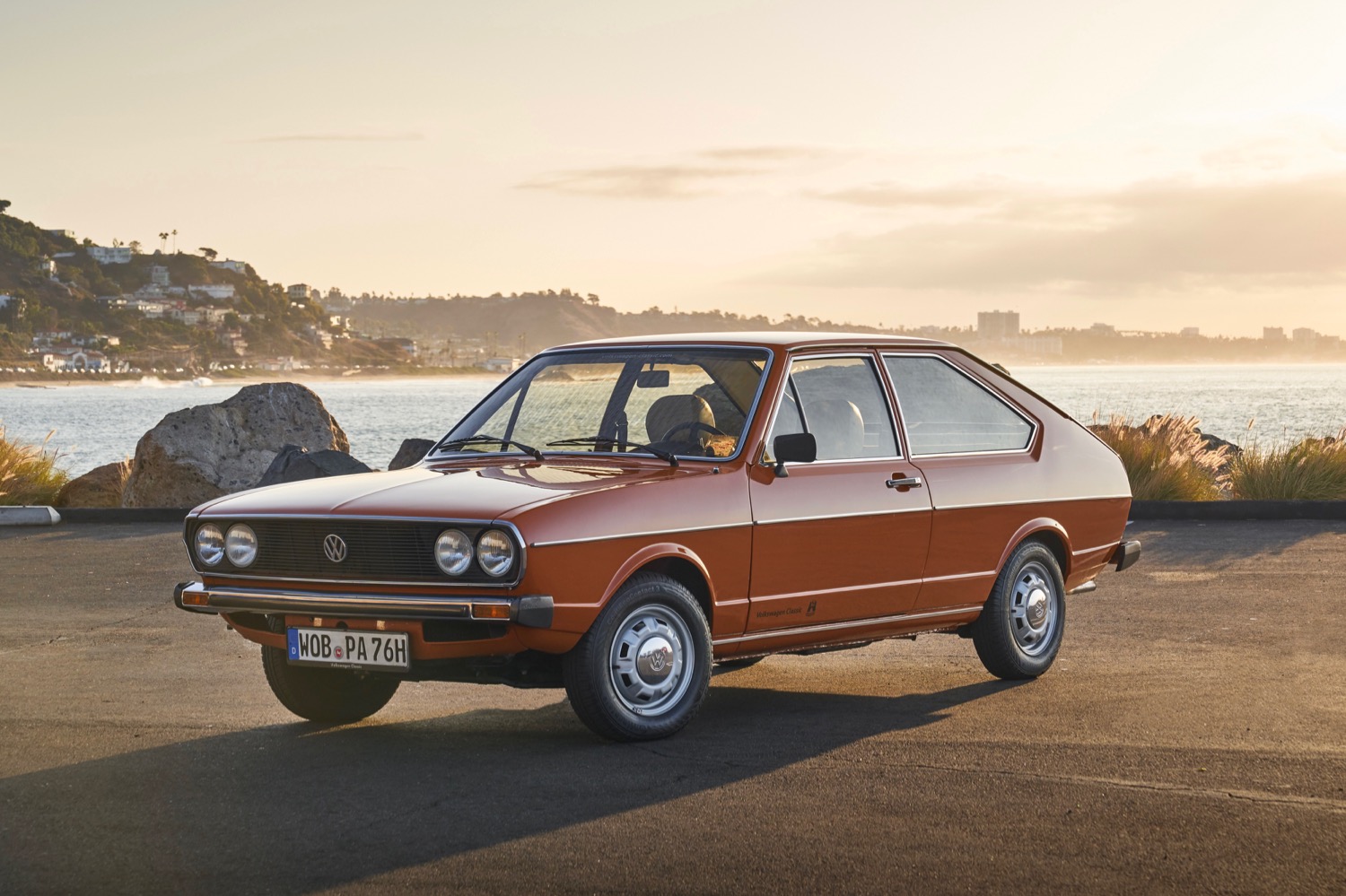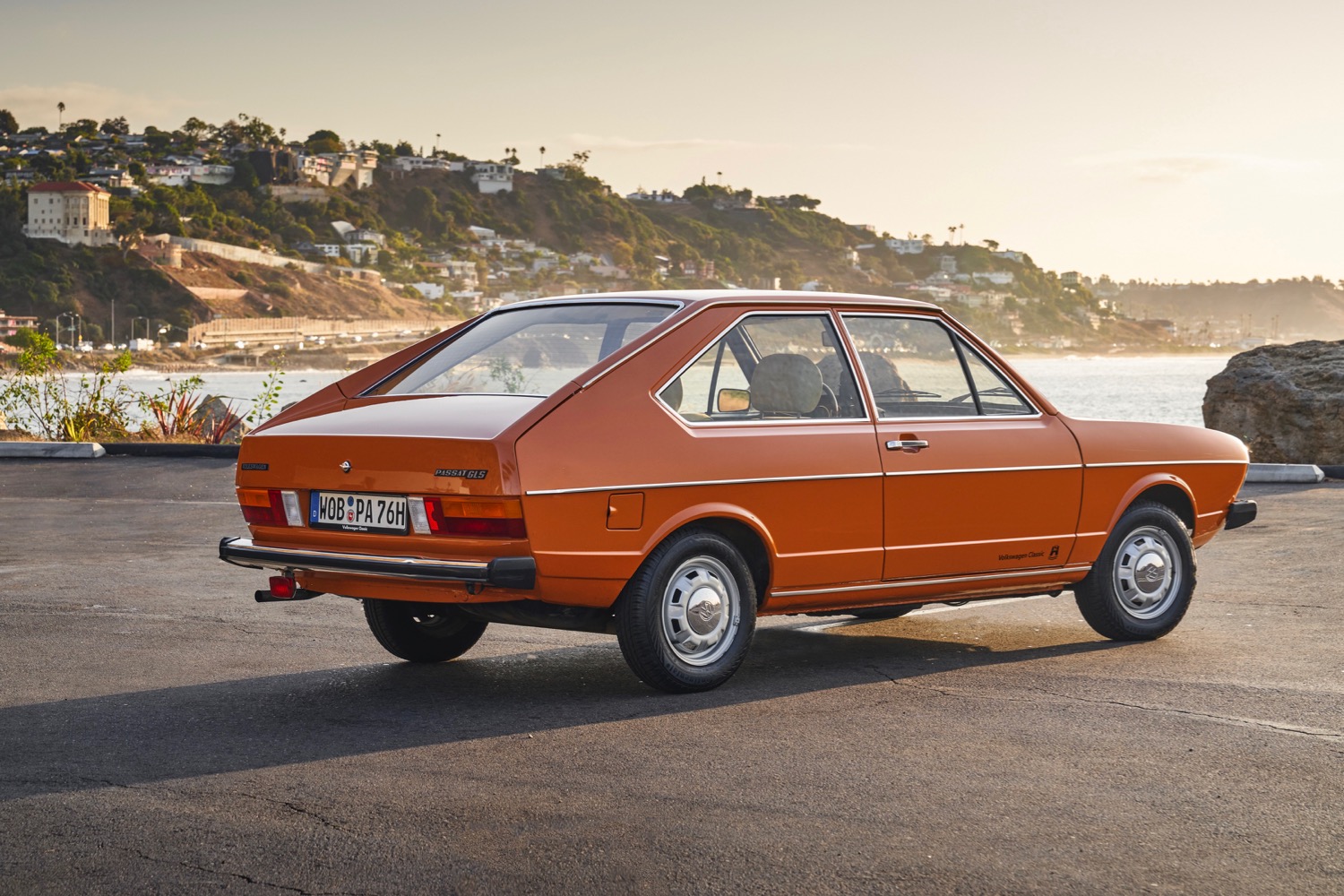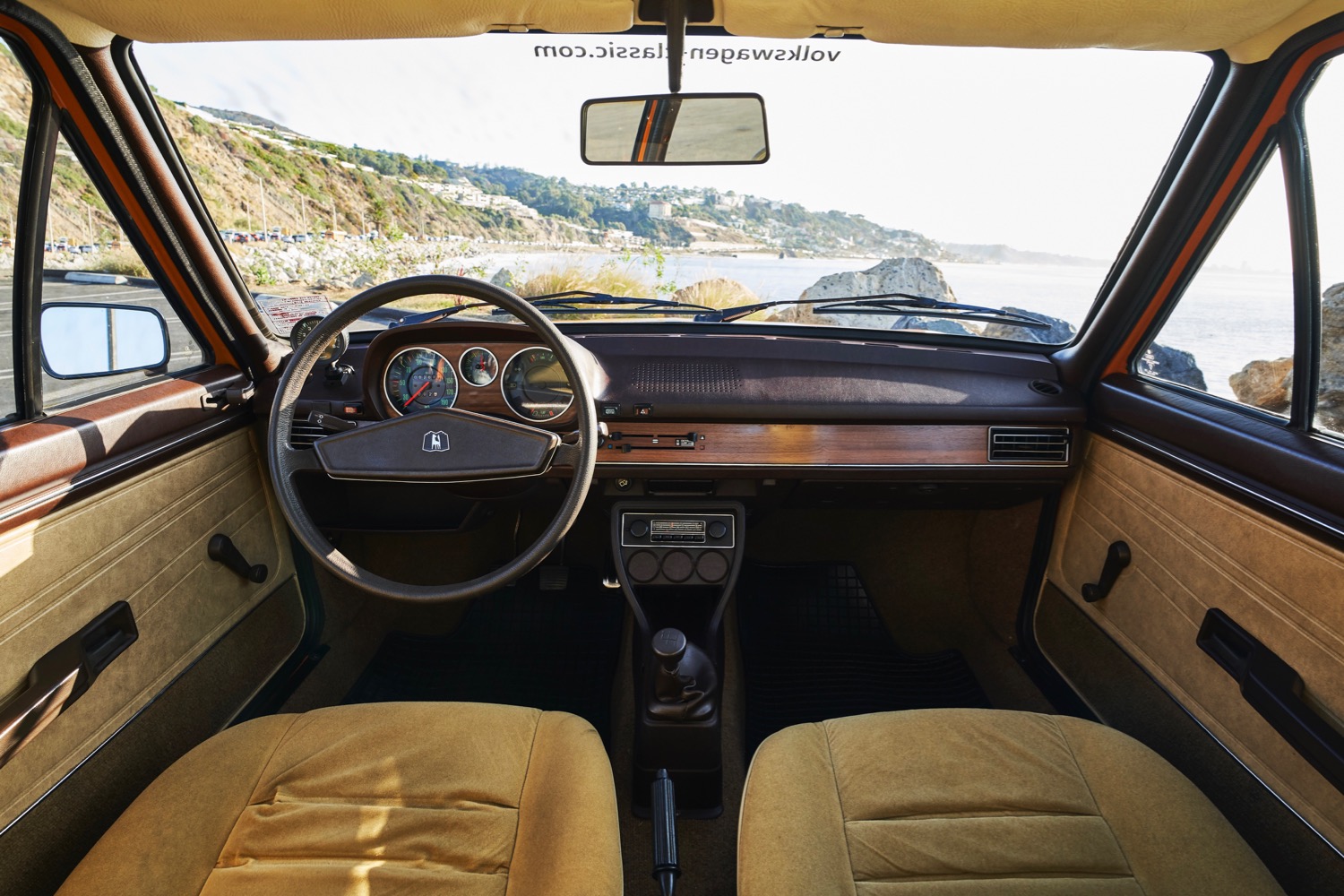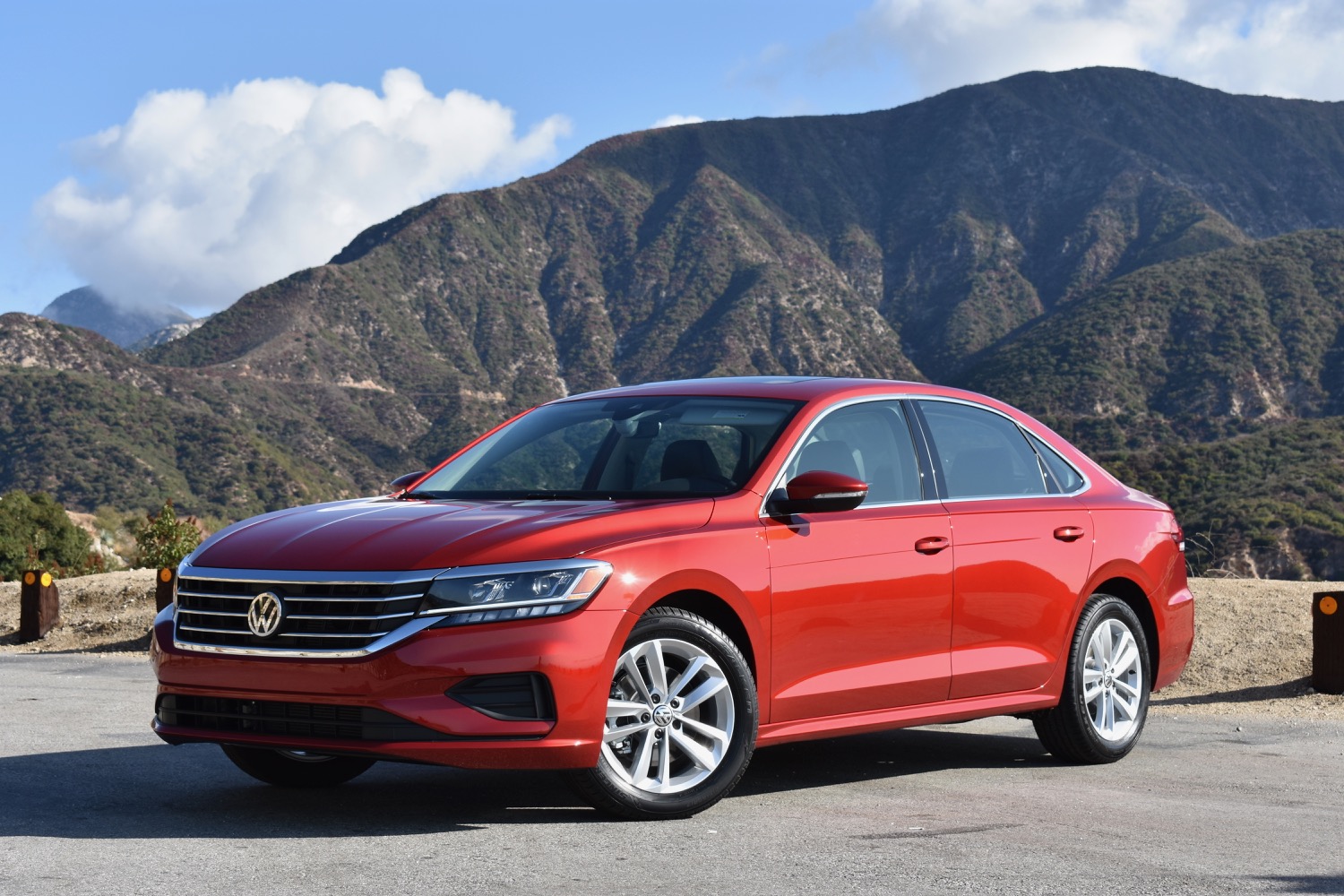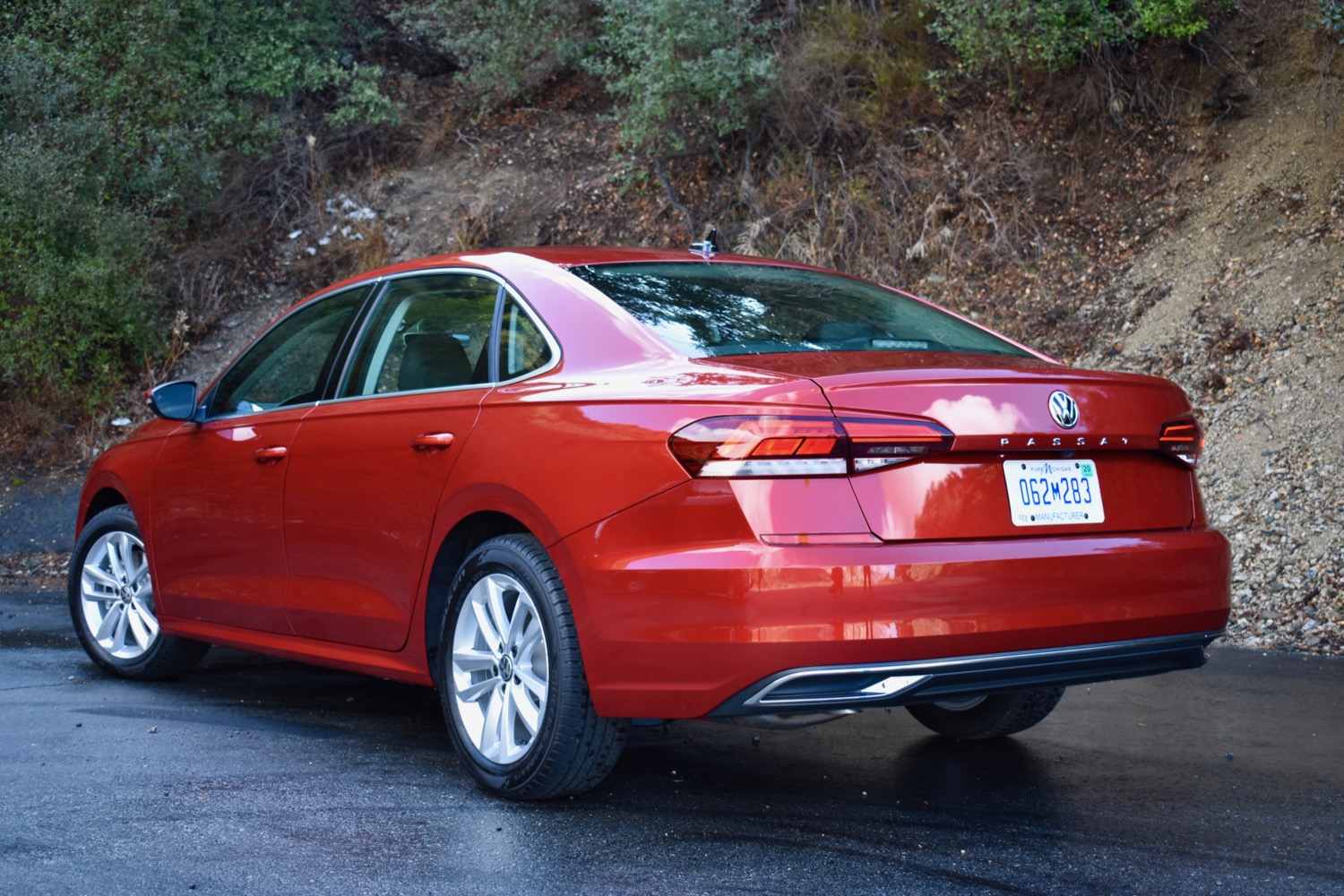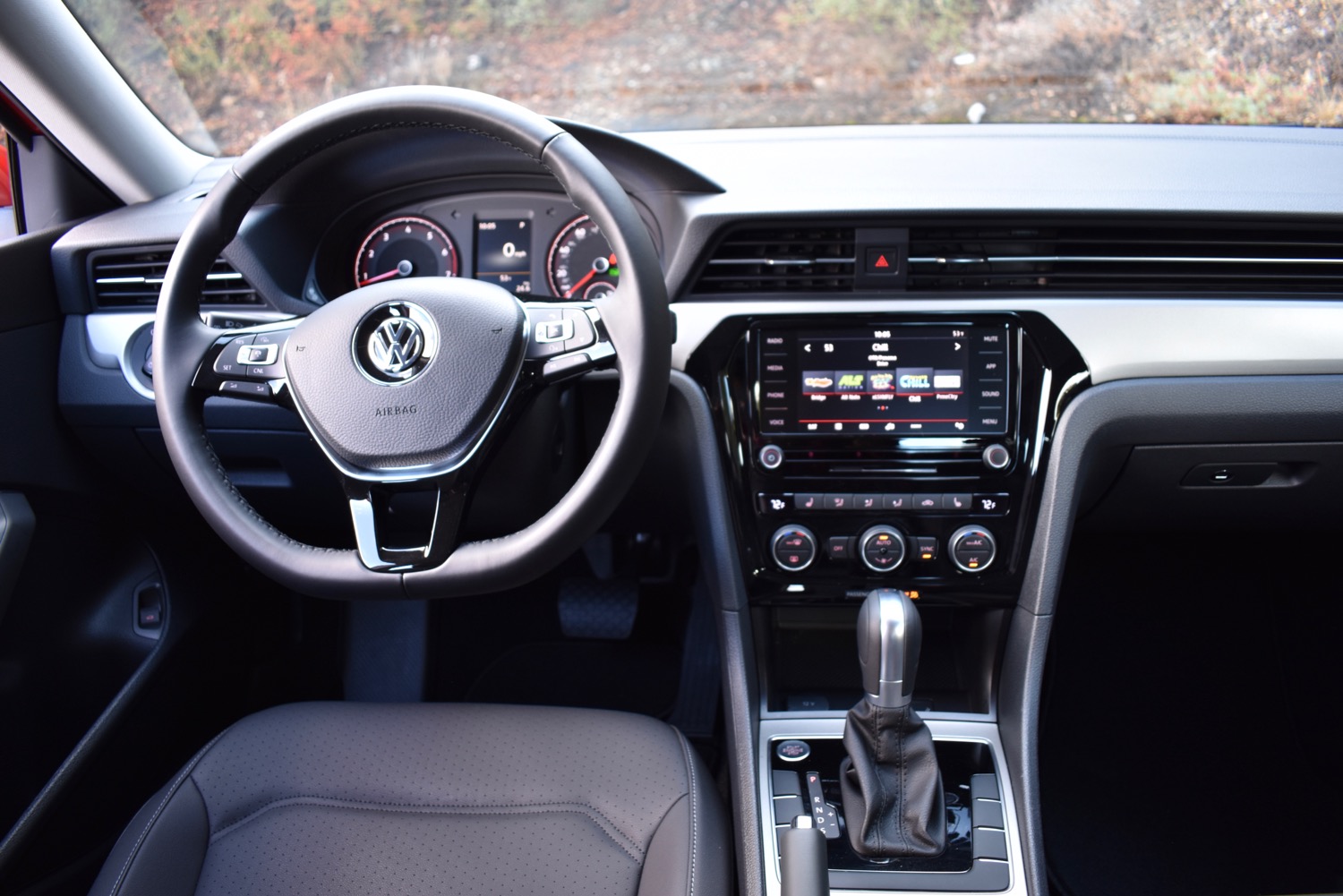The 2020 Volkswagen Passat is an unremarkable car. It’s not a bad car, but it doesn’t push the boundaries of technology, design or engineering in any appreciable way. It will get five people from place to place comfortably, safely, and efficiently without making much of an impression. But even an unremarkable car like this is absolutely brimming with tech. It just takes the right perspective to notice it.
Volkswagen invited Digital Trends to Los Angeles not only to drive the 2020 Passat (which receives a significant update for the new model year) but also to celebrate the brand’s 70th anniversary in the United States. In the interest of nostalgia (and appeasing us journalists) VW brought out a fleet of classic cars, including the Passat’s ancestor – a first-generation 1977 Volkswagen Passat, which was sold as the Dasher in the U.S. The 2020 Passat may feel humdrum among its modern competition, but it still makes the Dasher feel like a horse and buggy.
Back to the beginning
VW took a big risk inviting us to drive its vintage cars, with the company’s back catalog is full of fantastic icons like the Beetle and Microbus. Modern Volkswagens are good cars, but they lack the character of the older stuff. That’s fully apparent when you compare the 2020 Passat to its 1970s predecessor.
The 2020 Passat got a major facelift (the only sheetmetal left untouched was the roof, Passat product manager Kai Oltmanns told Digital Trends), so it no longer looks like the generic cars in a driver’s ed manual. But the Passat will still blend into the traffic, while the wedge shape of the Dasher will always stand out. In 1977, when the best-selling car in the U.S. was the Chevrolet Impala, the compact, simplistic Dasher made a statement for design efficiency. Today, that same simplicity gives it a charm most new cars can’t match.
You’ll often hear car enthusiasts talk about how old cars are more engaging to drive, and that’s absolutely the case with this Dasher. Comparing the driving experience of this car with the 2020 Passat is like comparing using a chainsaw with using a touchscreen. Everything on the Dasher has a physical feel; you don’t have electric power steering obscuring what the front wheels are doing, or stability and traction controls second guessing you. Our test car was equipped with an aftermarket tachometer, but you can almost shift the four-speed manual transmission by engine sound alone.
The Dasher also doesn’t have the issues you might expect with an older car. The front seats are downright spacious, and an adult human can even fit in the back of this three-door hatchback (VW also sold roomier five-door hatchback and station wagon body styles). On the road, the Dasher feels solid and, while not exactly quiet, cabin noise is tolerable. Granted, this probably the nicest 1977 Dasher on the road (it came from VW’s German collection, which is why you’ll see European-market Passat badges in photos) but it shows old cars can feel pretty modern.
Nonetheless, if we could only put one of these two cars in our driveway, it would still definitely be the 2020 Passat.
Back to the future
For a short drive on a sunny day along California’s Pacific Coast Highway, the Dasher is lots of fun. But for everyday use, the 2020 Passat is the obvious choice. It can carry people more comfortably, at faster speeds, and with greater safety. And that’s all thanks to what we expect in every new car – technology.
The 2020 Passat dwarfs the 1977 Dasher just like the American land yachts the Dasher would have shared the road with back when it was new. The current-generation Passat was designed specifically for the U.S. market, and that meant maximizing interior space. The Passat’s limousine-like rear seats are among the most spacious of any midsize sedan. Yet you won’t find a massive engine under this VW’s hood.
Both the 2020 Passat and 1977 Dasher are powered by four-cylinder engines. But while the Dasher has a 1.5-liter naturally-aspirated engine making 78 horsepower, the Passat has 2.0 liters of displacement and a turbocharger – good for 174 hp. That’s barely acceptable for a modern midsize sedan, but a massive increase over the Dasher.
A 0.5-liter increase in displacement won’t yield 96 hp on its own. The Passat’s ultra-modern turbocharger allows the engine to punch above its weight by drawing more air into the engine. Turbochargers were fairly exotic technology in 1977, reserved for race cars and a handful of road cars. Turbo lag – a lack of response when pressing the accelerator – made those cars virtually undriveable for daily use. In the ensuing decades, automakers have tamed the turbo with new designs and precise computer controls. They’re now used in everything from
You don’t get the satisfying experience of shifting yourself (the 2020 Passat is available only with a six-speed automatic transmission) but you do get drama-free power. In the Dasher, pulling out into traffic requires careful planning. In the Passat, you just put your foot down. The amount of power is by no means overwhelming (we wish VW had kept the old six-cylinder engine), but it’s delivered smoothly and predictably. We easily got a pre-production 2020 Passat up to 114 mph at VW’s Arizona Proving Ground, something the Dasher would be unlikely to achieve. The Passat engine even sounds pretty good, too.
In the 1970s, the Dasher’s small size gave it an advantage in fuel economy, but the 2020 Passat has that covered too. This roomy midsize sedan gets an EPA-rated 27 mpg combined (23 mpg city, 34 mpg highway). That’s better than the rating for the smaller Volkswagen Jetta just a decade ago.
Back to reality
Neither of these cars is a performance vehicle. The Dasher is just plain slow, and its primitive brakes and skinny tires don’t inspire much confidence. The Passat will keep you out of trouble, but on some of California’s best twisty roads it felt limp and lifeless. Given how most people will use the Passat, though, that doesn’t matter.
The average driver spends most of their time on less-exciting roads, and the Passat has everything needed to make a boring road bearable. Features that were considered luxuries on a mainstream car in 1977 – like air conditioning – are now standard equipment. Drivers were once considered spoiled for choice if their cars had AM and FM radio, but now every automaker is expected to have some form of smartphone interface, allowing drivers to pull music from many different sources, not to mention make phone calls, get directions, do everything else we rely on our phones for.

The Passat doesn’t have the most sophisticated interface (it lacks the digital instrument cluster available on other VW models), but it still gets a 6.3-inch touchscreen with Apple CarPlay and Android Auto. Features like these are no longer cutting-edge tech. They’re just what customers expect.
The same goes for safety. With its thin roof pillars and doors, we wouldn’t want to get in a crash in the Dasher. The Passat, on the other hand, is the product of a culture that prizes safety, and has the technology to improve crashworthiness. The Passat’s six standard airbags are a testament to that. Hit something in the Dasher, and you’ll have the steering wheel badge imprinted on your forehead. The Passat’s array of driver aids – including standard autonomous emergency braking and blind spot monitoring, as well as available adaptive cruise control – was unimaginable technology in 1977, and unheard of on a non-luxury car just a decade ago.
Conclusion
Our time with the 2020 Volkswagen Passat confirmed that the updated midsize sedan is good but not great. It reaches the bar, rather than resetting it. But just doing that requires a car that is spacious, fuel efficient, safe, and able to make its owner’s life easier. Tech makes that all happen. It’s easy to think of automotive tech as cutting edge, but the 2020 Passat shows it’s also just what customers can expect in new cars. The automobile has certainly come a long way.
What about the 1977 VW Dasher? It’s true that old cars have more character, but that comes at the cost of performance, creature comforts, and safety. Character won’t help you when you’re chugging up a hill with only 78 hp on tap, and sweating due to lack of air conditioning. What modern cars have lost in soul, they’ve gained in competence. The good old days weren’t all good.
